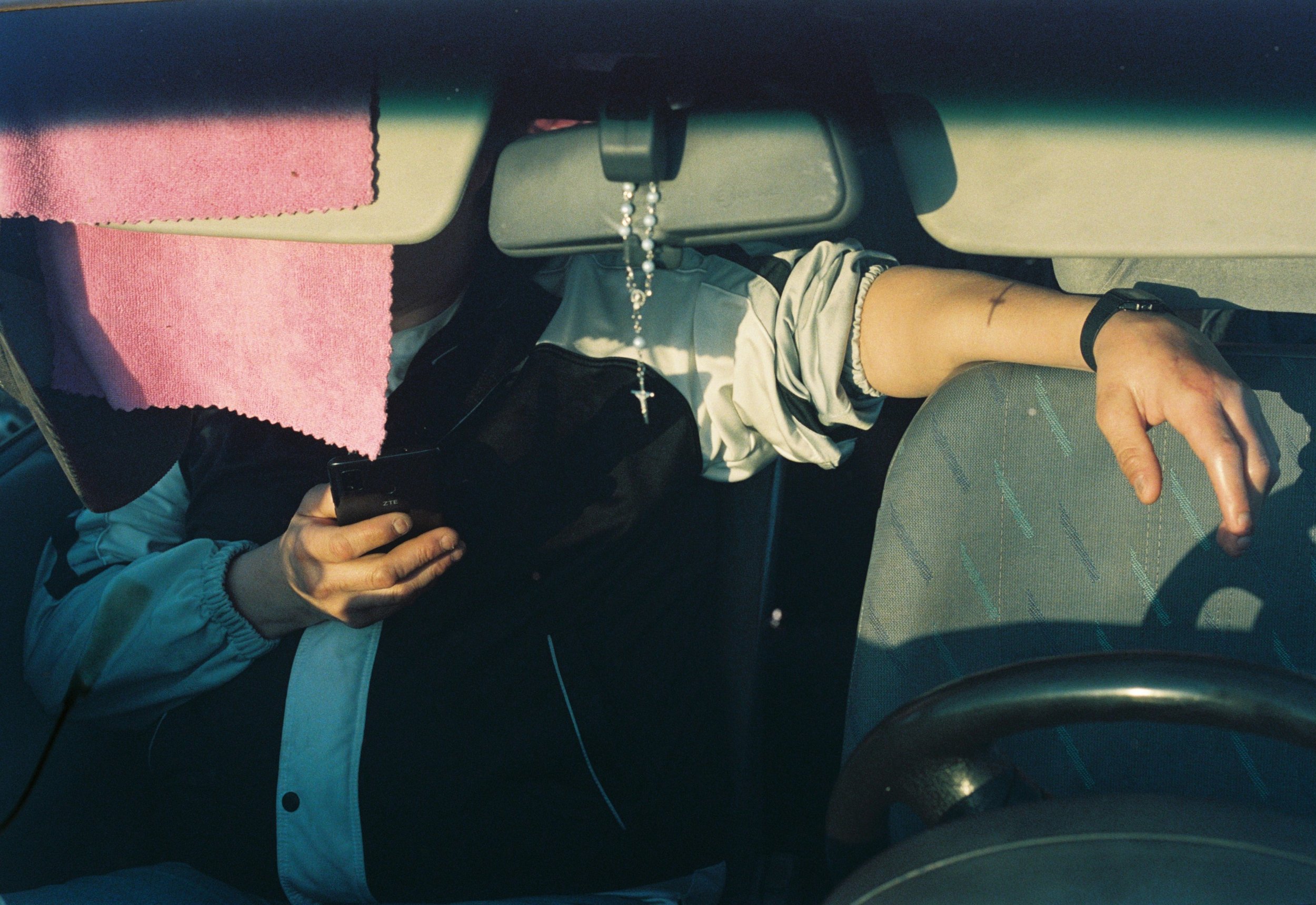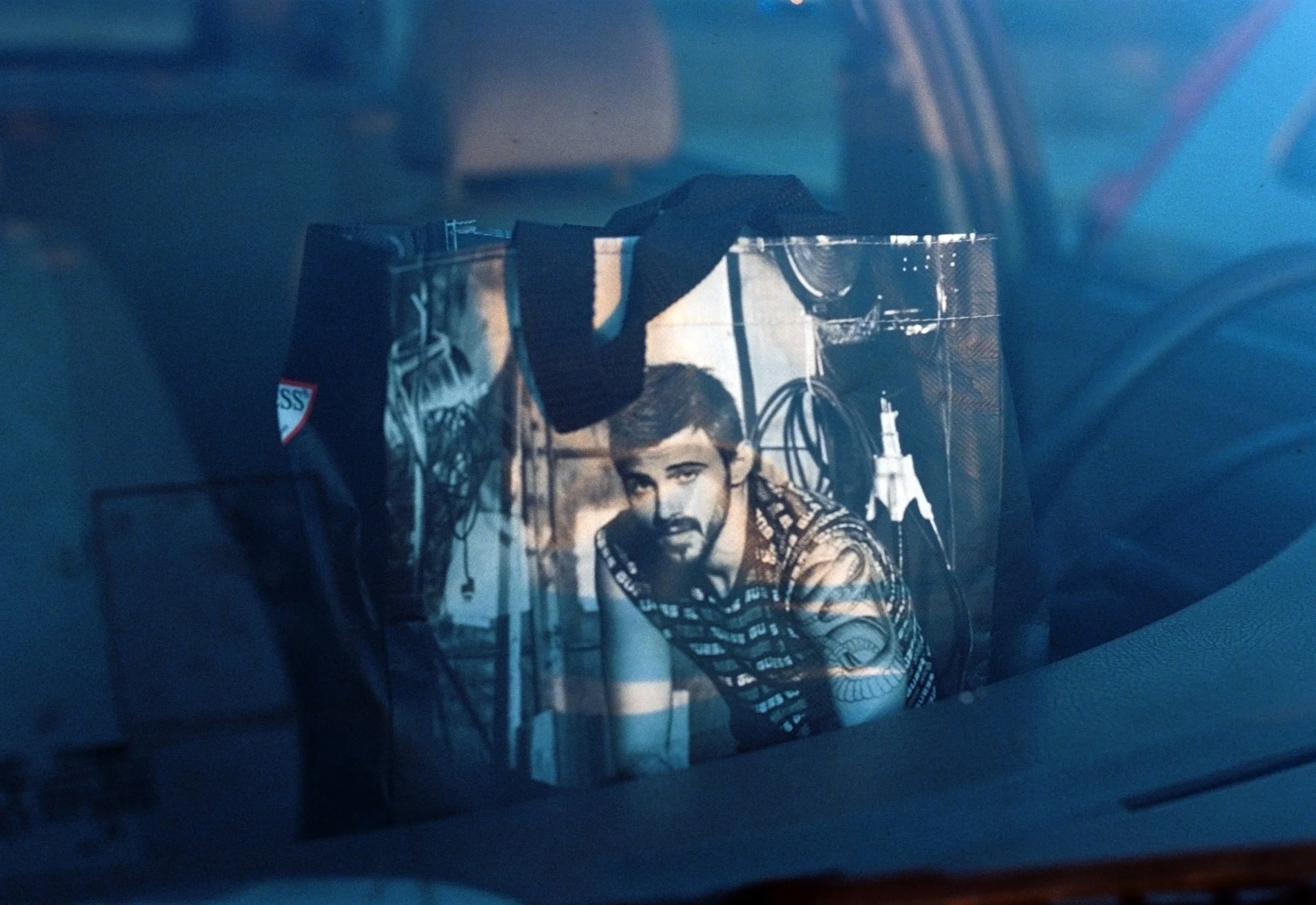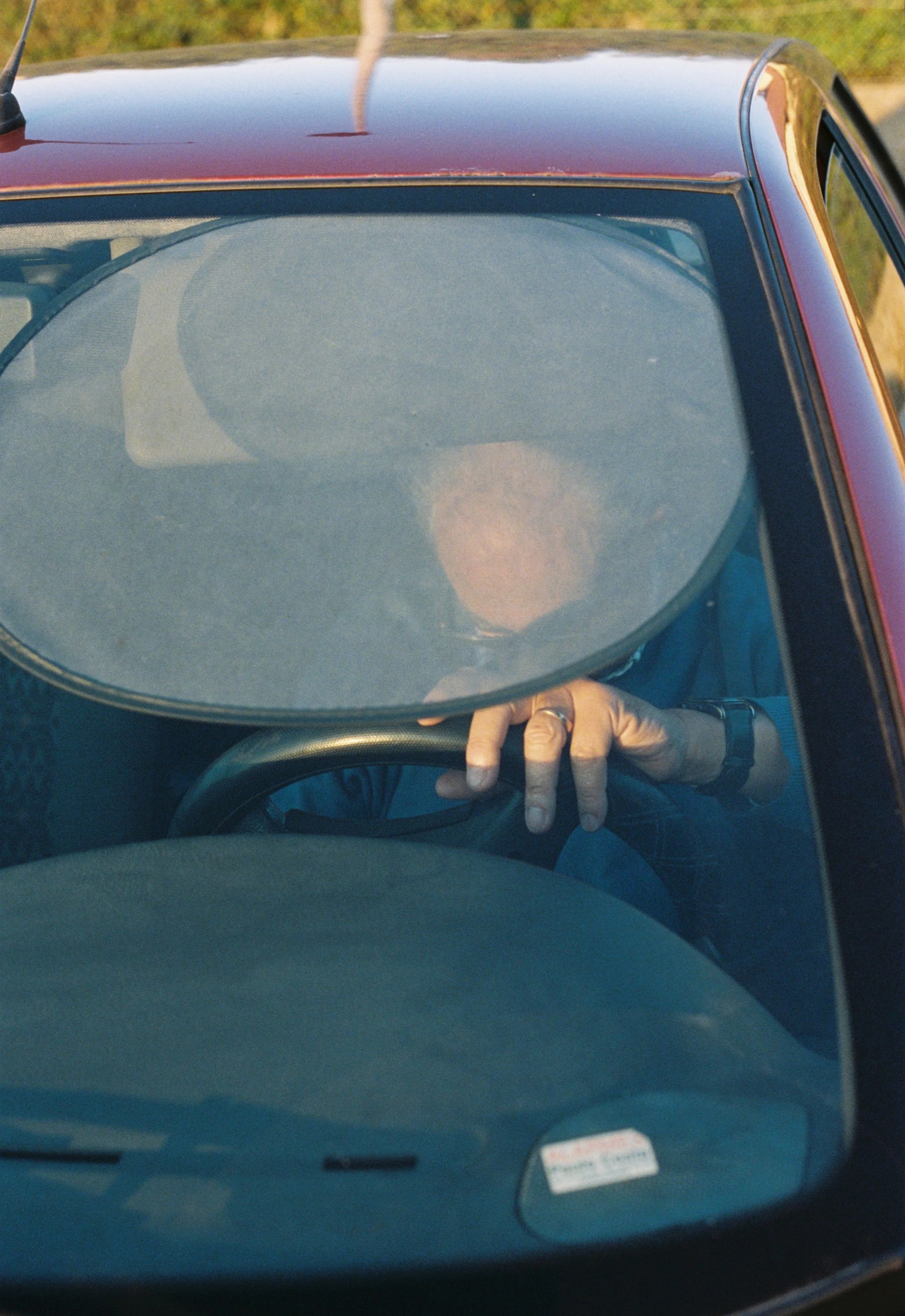(ES) Perder el Tiempo es un manifiesto hedonista sobre el derecho al ocio y a la improductividad, un elogio a la suspensión del ritmo de lo cotidiano. A través de una mirada etnográfica, el proyecto observa a quienes se detienen frente al mar dentro de sus coches, en ese intersticio entre la intimidad y la exposición pública.
El coche, en este contexto, se convierte en una extensión del hogar: un espacio móvil, doméstico y efímero, donde se trasladan rutinas y objetos personales. En los tableros se acumulan mapas, estampas religiosas, botellas de agua, gafas de sol; en los asientos traseros, mantas o pequeñas improvisaciones de confort. Cada vehículo revela una microcoreografía de usos y significados, donde lo privado se filtra hacia el exterior y el paisaje se vuelve un espejo del interior.
Esta es una forma de habitar el tiempo y el espacio que resiste la lógica de la productividad.
(EN) Perder el Tiempo is a hedonist manifesto on the right to leisure and unproductiveness—an ode to the suspension of everyday rhythm. Through an ethnographic lens, the project observes those who remain inside their cars facing the sea, inhabiting that threshold between intimacy and public exposure.
In this setting, the car becomes an extension of the home: a mobile, domestic, and ephemeral space where routines and personal belongings travel with their occupants. Maps, religious icons, water bottles, and sunglasses accumulate on dashboards; blankets and small gestures of comfort appear in the back seats. Each vehicle reveals a micro-choreography of uses and meanings, where the private seeps outward and the landscape turns into a mirror of the interior.
Perder el Tiempo explores a way of inhabiting time and space that resists the logic of productivity, reclaiming moments of stillness as acts of presence.











































